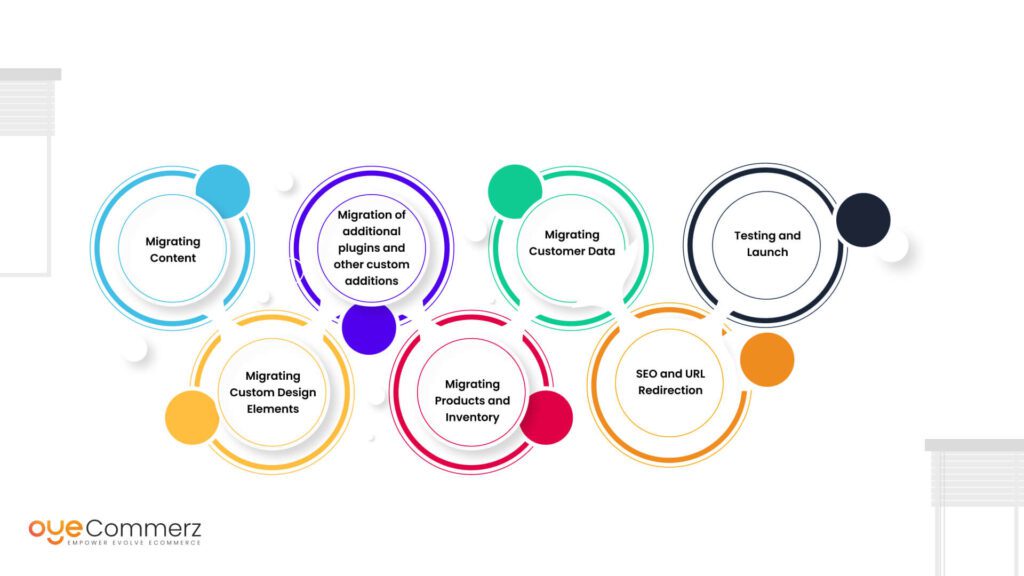In the ever-evolving world of online retail, selecting the best platform is crucial for your business's success. If you’re at the moment using WP and planning a migration to an alternative, you’re not by yourself. Numerous businesses are making this transition to leverage Shopify’s robust features, simplicity, and growth potential. This guide will guide you on the journey of migrating from WP to Shopify seamlessly, ensuring that you achieve your online retail potential.
Why Switch from WP to Shopify?
Before diving into the migration process, it’s crucial to know why this shift can be advantageous for your eCommerce business:
Intuitive Design: Shopify features an intuitive interface that makes easier store operations, allowing for non-technical users.
Scalability: As your brand expands, Shopify can handle greater visitors and transactions without affecting performance.
All-in-One Solutions: Shopify includes built-in resources for search engine optimization, analytics, payment handling, and more, minimizing the necessity for numerous plugins.
Advanced Safeguards: With Shopify, you get access to robust security protocols that protect critical customer information.
Steps for a Seamless Migration
Migrating your eCommerce site from WordPress to Shopify includes multiple steps.
Here’s steps to achieve a smooth transition:
Outline Your Migration Strategy
Kick-off by drafting your migration blueprint. Pinpoint which components of your existing site you want to migrate, such as:
Product data
Customer information
Purchase logs
Blog content
Choose the Best Migration Package
Considering your needs, choose a migration package that fits your eCommerce goals. OyeCommerz delivers several options:
Entry-Level Plan: Ideal for compact stores with limited products.
Regular Option: Suitable for growing businesses with more complex needs.
Comprehensive Solution: Best for high-volume stores needing broad customization.
Secure Your Data
Prior to initiating the migration, make sure that you have a comprehensive backup of your WordPress site. This task is crucial in the event anything migrate WordPress to Shopify goes off track during the transfer.
Retrieve Your Information from WordPress
Leverage extensions or manual methods to transfer key data from your WordPress site:
Items
Users
Orders
Articles
Migrate Data into Shopify
After you have your content extracted, use Shopify’s built-in features or specialized apps to transfer your information into your new store. Verify that all information is properly structured and aligned.
Personalize Your Shopify Site
Once uploading data, customize your Shopify platform’s theme to align with your business goals. Think about working with a specialist if you need advanced customization.
Configure TransactionOptions and Logistics
Set up transaction methods and delivery choices in Shopify to create a seamless checkout experience for customers.
Implement SEO Standards
To preserve your SEO performance during the change:
Use 301 link updates from existing URLs to migrated ones.
Revise meta tags.
Optimize images and content for SEO.
Test Your New Store
Before going live, thoroughly test your new store. Check for any broken links, payment processing issues, or missing data.
Launch Your Store
Once everything is in ready, it’s the Shopify analytics integration moment to go live! Share the change to your customers and encourage them to explore the new offerings of your Shopify store.
Post-Migration Guidance
Following releasing your updated store, continued help is essential. Consider working with experts who can guide with:
Technical support
Marketing strategies
Improvement strategies
Conclusion
Migrating from WordPress to this platform can be a transformative step for your online retail. By following this guide and utilizing experts like those offered by industry leaders, you can achieve a effortless transition that improves your digital storefront. Accept the change and realize the potential of Shopify today!
